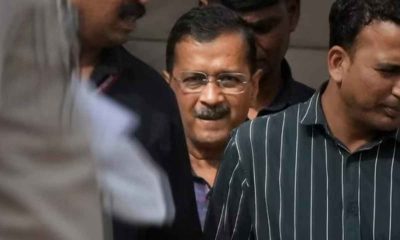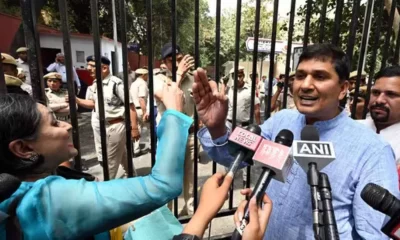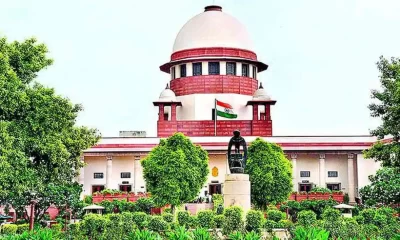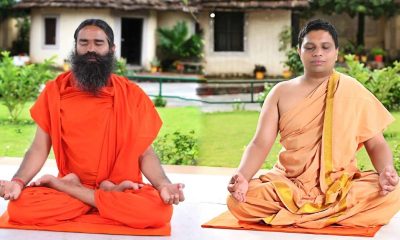India News
Tamil Nadu files contempt petition against Centre for not taking steps to resolve Cauvery dispute, Centre seeks time
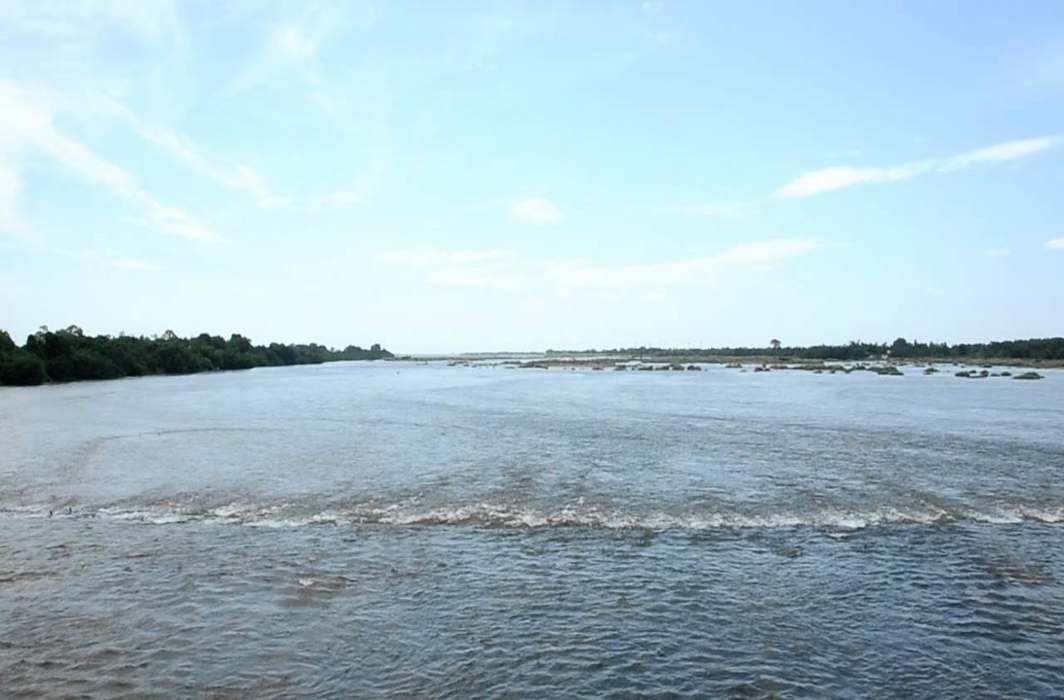
The Tamil Nadu government on Saturday, March 31 filed a contempt petition against the Central government a day after the Supreme Court’s six-week deadline to put in place a mechanism to resolve Cauvery dispute ended.
The Supreme Court in its February 16 judgment in the Cauvery dispute had mandated the Central government to frame a scheme to set up a Cauvery Management Board (CMB) and a Cauvery Water Regulation Committee (CWRC) to monitor the allocation of the river water among Tamil Nadu, Karnataka, Kerala and Puducherry.
Tamil Nadu accused the Centre of refusing to act to “protect the interests of the farmers and the larger interests of the State” and urged the apex court to “purge the contempt forthwith” by directing the Centre to frame a scheme in accordance with the judgment by providing for CMB and CWRC vested with all powers to give effect to the decision of the Cauvery Tribunal as well as the judgment of SC.
As per the February 16 judgment in the Cauvery appeals, the Centre had to frame the scheme in six weeks. The deadline ended on March 29. On the eve of the deadline, the Centre moved the Supreme Court for a three-month extension for the implementation of the judgment, citing the model code of conduct due to Karnataka elections. As Karnataka is having Assembly elections on May 12, the Centre wants to deal with the sensitive Cauvery issue after the polls.
The Centre felt that constitution of a scheme under Section 6(A) of the Inter-state River Waters Disputes Act and notification during the assembly election process would lead to massive public outrage, vitiate election process and cause serious law and order problems.
The Centre also sought a clarification on constitution of Cauvery Management Board from the top court asking whether it is open to the Central government to frame the scheme under 6(A) at variance with the recommendations contained in the report of the Cauvery water dispute tribunal regarding Cauvery Management Board.
It also wanted to know whether, if the board as recommended by the tribunal is to be constituted, would the Central government have the flexibility to modify the composition of the board to a mixture of administrative and technical body and not purely a technical body for effect conduct of the business of the board and considering overall sensitivity of the issues involved.
It also wanted a clarification whether the board framed under 6(A) of the act can have functions different from the ones recommended for Cauvery Management Board by the tribunal.
The Centre said in compliance of the February 6 order of the court and in spirit of true federalism, it convened a meeting of the Chief Secretaries of the four states and other officials and initiated consultations for arriving at a consensus. Divergent views were expressed by the states, said the Centre.
Tamil Nadu indicated that the scheme as mentioned by the Supreme Court has been defined in Section 6 which is to implement the final order of the tribunal under the court. The view of Tamil Nadu was that the Central government was mandated to put in place an authority or the body for implementation of the final decision by constituting the board and Cauvery Water Regulation Committee.
Puducherry and Kerala gave similar views but Karnataka was of the opinion that the Supreme Court has left the contents of the scheme to the discretion of the Central government.
It said the contention of Tamil Nadu that the board as formulated by the tribunal should be a part of the Scheme is wholly contrary to the mandate of the judgment and law.
Karnataka also contended that the Scheme contemplated in the Supreme Court judgment is a dispute resolution body as distinct from the management or regulation recommended by the tribunal. Therefore the question of asking Karnataka submit indent does not and should not arise for consideration.
Karnataka said the management and regulation of water of a state namely equitable share of a state determined by the adjudication is the sole prerogative of the state by reference to the entry 17 of the State list to the seventh schedule of the Constitution and therefore a scheme in the form of the board is clearly ultra vires of the Constitution.
Fifthly, Karnataka contended that the Supreme Court has not endorsed or approved the board in its judgment.
On the other hand, Tamil Nadu, which filed the contempt petition through advocate G. Umapathy as soon as the Supreme Court Registry opened on Saturday, reminded that the apex court has clearly, in its February 16 verdict, banned any extension of time to the Centre for framing a scheme.
“Central Government was bound to give effect to the judgment by framing a scheme so that the authorities under the scheme viz. Cauvery management board and Cauvery water regulation committee are put in place within six weeks… It has not taken any concrete steps in this regard,” Tamil Nadu contended.
It pointed that belatedly, after a period of three weeks, the Central government merely convened a meeting of the Chief Secretaries of the party States on 09.03.2018. “The convening of such a meeting does not in any way make any substantial progress in the matter of constitution of a Cauvery management board and Cauvery water regulation committee,” said Tamil Nadu.
Tamil Nadu said it had written to the Centre repeatedly on March 13, March 21 and March 23 for the constitution of a Cauvery management board within the six-week time limit so that farmers do not suffer during the irrigation season commencing from June 1.
“Ensuring timely release of water is apparent in the judgment itself and, therefore, any delay in constituting a Cauvery management board and a Cauvery water regulation committee is to the prejudice to the farmers of State of Tamil Nadu… In the absence of any cogent reasons for not constituting a Cauvery management board and a Cauvery water regulation committee within the time frame and/ or not making any substantial steps in that directions amount to wilful disobedience of the judgment of the Supreme Court,” Tamil Nadu said.
India News
Salman Khan house firing case: Mumbai crime branch recovers gun, cartridges from Tapi River in Surat
One gun and some cartridges have been recovered from the Tapi river in Surat by the Mumbai Crime Branch in the firing case outside Salman Khan’s residence, as per reports.
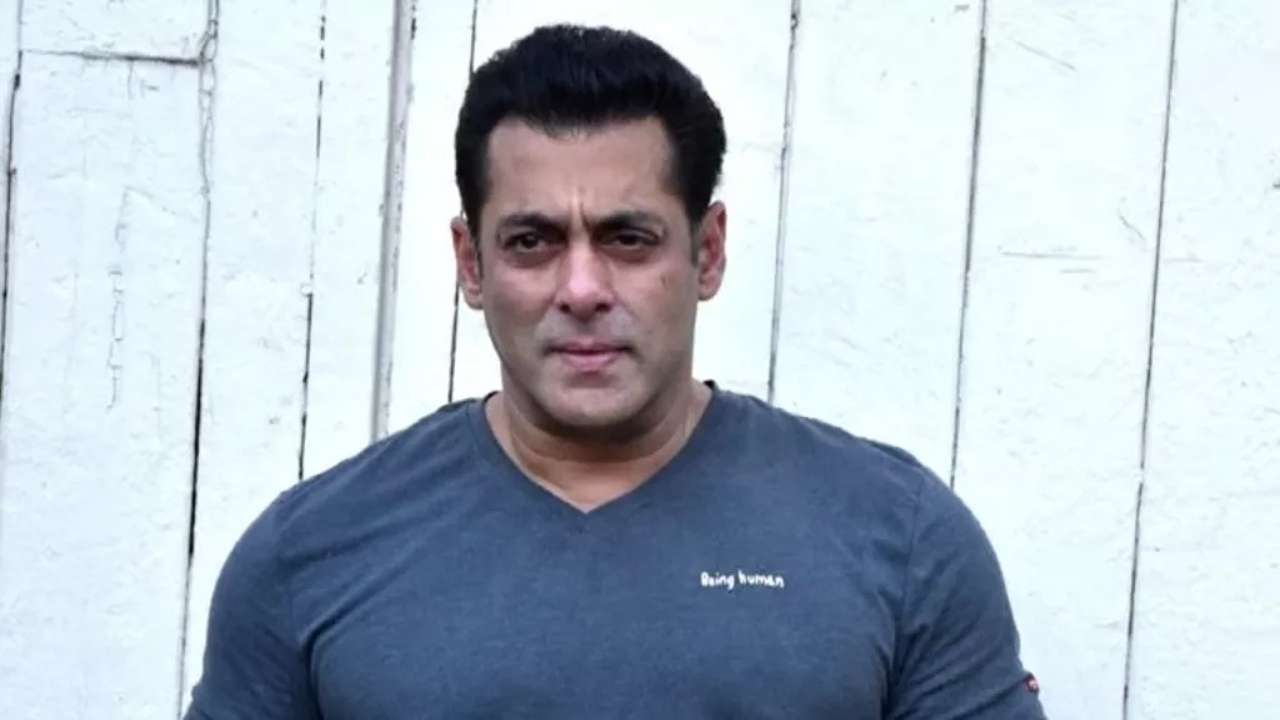
The Mumbai Crime Branch on Monday, April 22, found a gun and some live cartridges, which was used for firing outside Salman Khan’s house, from Tapi River in Gujarat’s Surat.
This is a fresh update related the gunfire incident outside Salman Khan’s apartment at the Galaxy Apartment in Bandra on April 14. According to the crime branch, they are currently looking for another gun.
It is interesting to note that the accused, after performing the crime, dropped the gun into the Tapi River in Surat.
As to the Mumbai Crime Branch, the shooters who opened fire outside Salman Khan’s residence have two guns and were instructed to shoot 10 rounds of fire.
Outside the actor’s apartment at the Galaxy Apartments in the early hours of April 14, two people arrived on a motorcycle and fired four rounds.The attackers left the location shortly after the event. Both individuals were wearing headgear and carrying backpacks, according to surveillance footage.
The Mumbai Crime Branch has taken the accused Vicky Gupta with them to the Surat Tapi river, where they had thrown the gun. The police can add more sections to this case. More than ten people’s statements have been recorded in the Salman Khan case, and the recording process is still ongoing.
The Mumbai Crime Branch announced on April 20 that three more sections have been added to the FIR against the offenders in an effort to step up the investigation into the shooting incident at Bollywood actor Salman Khan’s home.
The case has been appended with the extra sections under IPC 506(2) (threatening), 115 (abetment), and 201 (tampering with evidence). Gangster Lawrence Bishnoi and his brother Anmol Bishnoi have been named as wanted suspects in connection with the crime, according to Mumbai Crime Branch police.
Shortly after the shooting, Anmol Bishnoi, the younger brother of criminal Lawrence Bishnoi, who is currently incarcerated, allegedly claimed responsibility for the incident on Facebook.
Notably, Salman’s security level has been increased to Y-Plus since November 2022 because to threats from gangsters Lawrence Bishnoi and Goldy Brar. The actor also obtained a new armored vehicles for increased protection and was given permission to carry a handgun on his person.
India News
Arvind Kejriwal given insulin in Tihar jail after sugar levels touch 320
Finally, the BJP and its jail administration came to their senses and gave insulin to CM Arvind Kejriwal in jail, AAP tweeted.
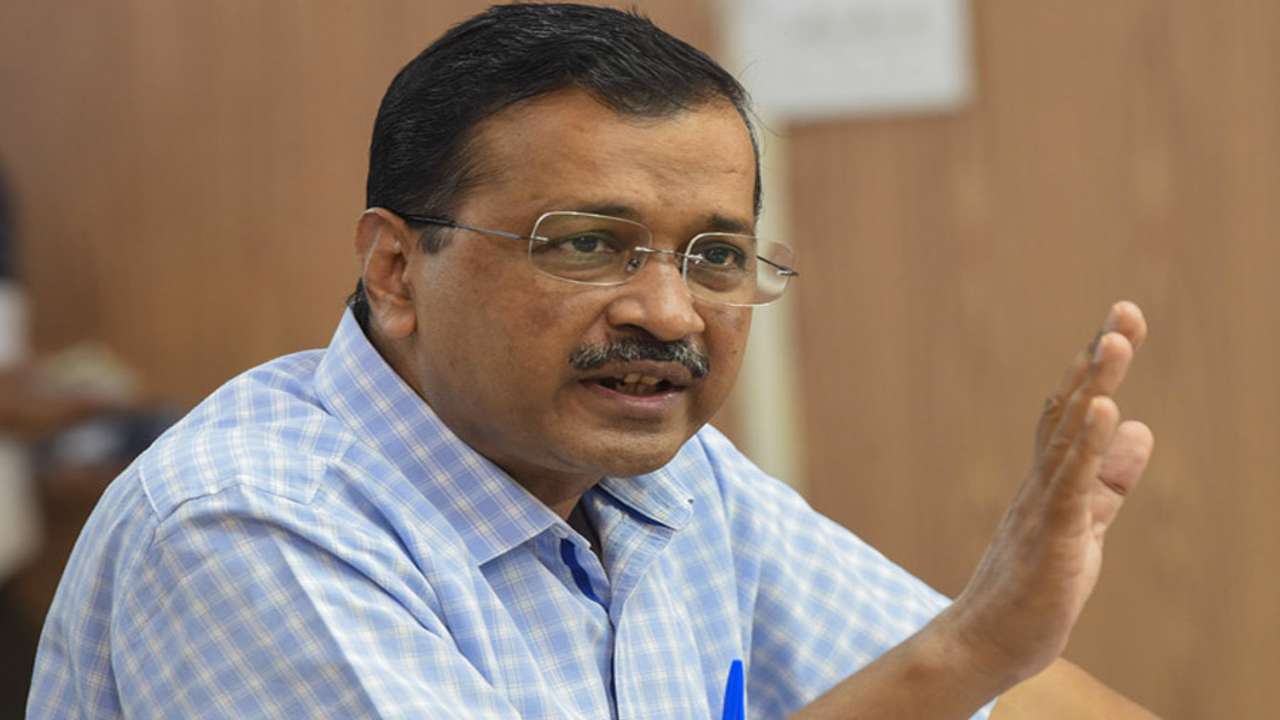
Delhi Chief Minister Arvind Kejriwal received insulin on Tuesday, April 23, after days of battling, according to the Aam Aadmi Party.
Arvind Kejriwal, however, received a low dose of insulin, according to Tihar jail officials, following a rise in his blood sugar. Around 7:00 p.m., his blood sugar level was found to be 217, and the medical staff at Tihar who were attending to him then made the decision to give him insulin, according to an official.
Taking to social media X, formerly Twitter, AAP tweeted, CM Arvind Kejriwal received insulin in jail after the BJP and its jail administration finally had a change of heart. CM Kejriwal’s blood sugar level was 320. Only the graces of Lord Hanuman and the perseverance of the Delhi community have made this possible. The AAP announced in a tweet on X that they have succeeded in delivering insulin to our Chief Minister.
According to the Tihar official, Kejriwal was given two units of low dose insulin on Monday evening on the advice of AIIMS doctors.
Low-dose insulin was given to Delhi Chief Minister Arvind Kejriwal at Tihar Jail yesterday. Yesterday, his sugar levels were 217. When the level surpasses 200, the AIIMS experts had stated that he could receive low-dose insulin, according to a Tihar Jail official.
He said Tihar’s doctors had been informed by AIIMS specialists in a video conference with the chief minister on April 20 that insulin could be given to him if his blood sugar level exceeded a specific threshold.
The incident took place just one day after a Delhi court ordered the AIIMS to set up a medical board to evaluate Arvind Kejriwal in order to determine whether or not he requires insulin to regulate his blood sugar levels. The court further said that the food prepared at home by the AAP national convenor differs from the diet plan prescribed by his doctor.
The order was issued by special judge Kaveri Baweja for CBI and ED cases, who turned down Arvind Kejriwal’s request for a video consultation with his doctor in front of his wife Sunita Kejriwal.
Delhi health minister Saurabh Bharadwaj said on Monday that Arvind Kejriwal has been detained in Tihar for almost 22 days. He has been complaining for several days that his blood sugar is rising and that the jail does not have a diabetes specialist. He has been requesting insulin. It is evident from the court’s ruling today that Tihar jail does not have a diabetes specialist.
Since insulin is the only option available to control his blood sugar levels, Arvind Kejriwal has been requesting it nonstop for the past ten days, according to AAP leader Atishi.
The Enforcement Directorate (ED) arrested Arvind Kejriwal on March 21 in relation to a money-laundering investigation involving the Delhi government’s now-scrapped excise policy. The CM has been logged in Tihar jail since April 1.
India News
Lok Sabha elections: BJP candidate Mukesh Dalal wins from Surat after opponents remain out of fray
BJP’s Surat Lok Sabha candidate Mukesh Dalal has won the seat unopposed
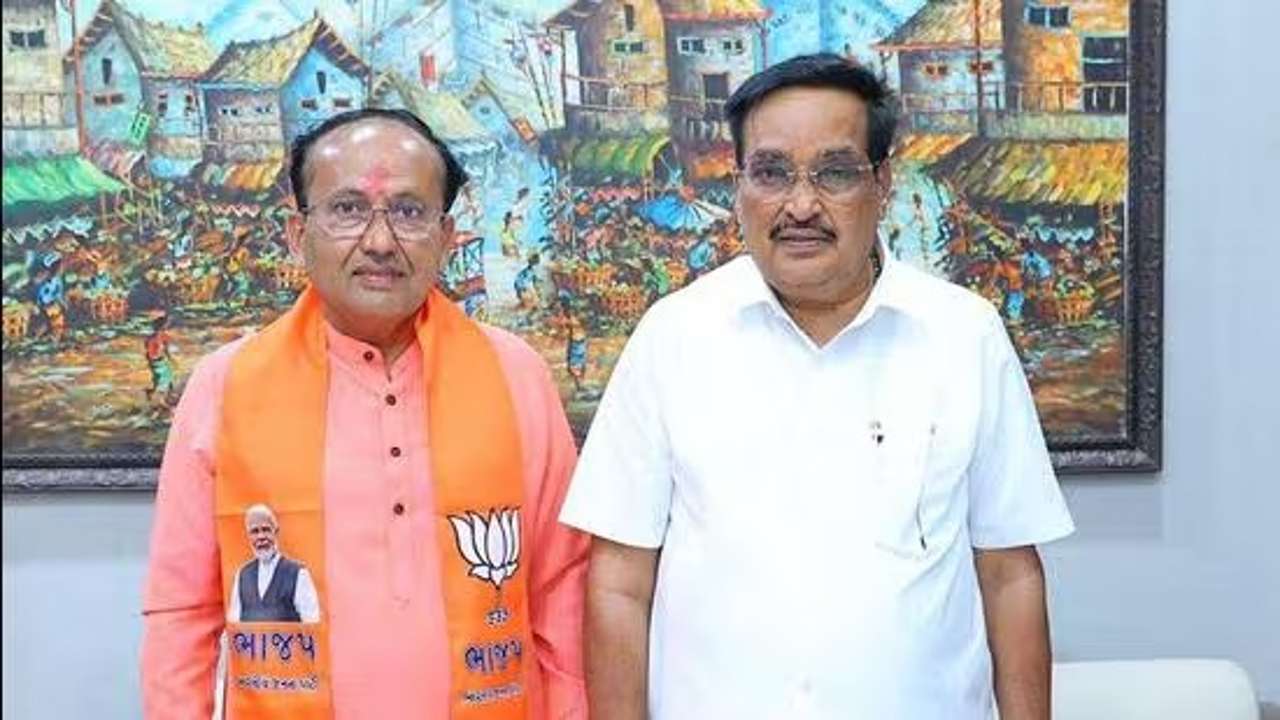
Bharatiya Janata Party (BJP) candidate Mukesh Dalal is elected unopposed from Gujarat’s Surat Lok Sabha constituency after all other contenders withdrew their candidature.
Gujrat BJP chief CR Paatil took to hi social media account X, formerly Twitter, and congratulated Dalal for being elected unopposed.
This latest developmnet comes after the cancellation of two Congress candidates’ nominations on Sunday and the withdrawal of eight more on Monday.
The Congress candidate for the Surat Lok Sabha constituency, Nilesh Kumbhani, had his nomination form canceled since he was unable to produce even one of his three proposers before the election commissioner.
The differences in three proposers’ signatures on Kumbhani’s nomination form had drawn scrutiny from the BJP.
The Congress’s replacement candidate from Surat, Suresh Padsala, had his nomination form nullified as well, which eliminated the party from the race in the city.
Returning Officer Sourabh Pardhi issued an order stating that the four nomination forms that Kumbhani and Padsala had presented were refused because there were initially found differences in the proposers’ signatures, making them seem fake.
Pardhi’s order also mentioned that the proposers acknowledged having signed the forms themselves in their affidavits. It should be noted that Kumbhani’s three proposers were related to him.
Nilesh Kumbhani was given a day by the Returning Officer to submit his response following the proposers’ claim. The congressional candidate arrived at the polling place with his representative; however, none of his three proposers showed up.
According to the order, the Congress candidate’s attorney had requested that the camera tape be checked, and even their presence was not discovered.
Meanwhile, the Congress said that everyone was afraid of the government’s threat and accused the ruling BJP of being involved in dirty play.
Congress leader and activist Babu Mangukiya said that Kumbhani’s three proposers had been abducted, and he suggested that the Returning Officer look into this matter rather than the validity of the signed form.
According to Mangukiya, it was improper to cancel the form without first telechecking the signatures and determining whether or not the proposers’ signatures were accurate.
-

 Entertainment21 hours ago
Entertainment21 hours agoRanveer Singh files FIR in viral Deepfake video case
-
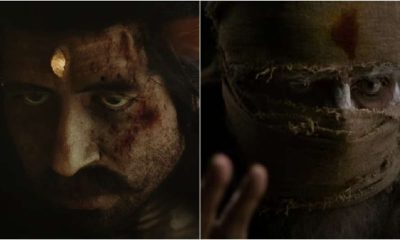
 Entertainment24 hours ago
Entertainment24 hours agoKalki 2898 AD: Amitabh Bachchan’s first look as Ashwatthama unveiled, internet heaps praise
-
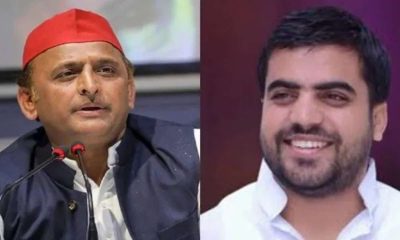
 2024 Lok Sabha Elections18 hours ago
2024 Lok Sabha Elections18 hours agoSamajwadi Party fields Lalu Yadav’s son-in-law Tej Pratap from Kannauj
-
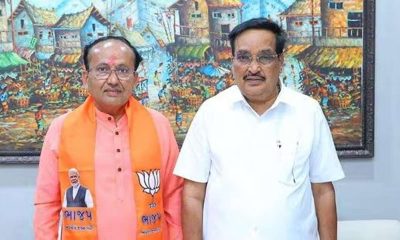
 India News19 hours ago
India News19 hours agoLok Sabha elections: BJP candidate Mukesh Dalal wins from Surat after opponents remain out of fray
-
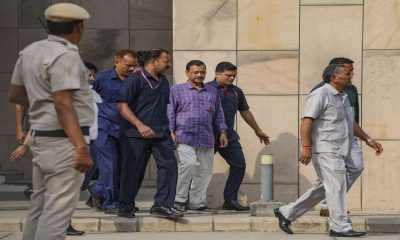
 India News21 hours ago
India News21 hours agoArvind Kejriwal writes letter to Tihar Jail officials, asks for insulin daily
-
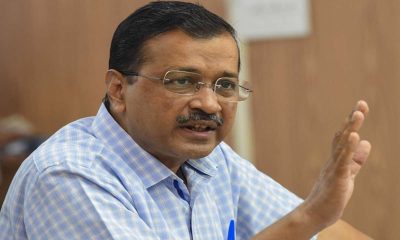
 India News1 hour ago
India News1 hour agoArvind Kejriwal given insulin in Tihar jail after sugar levels touch 320
-
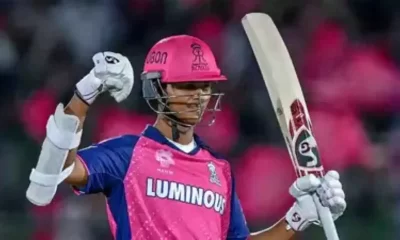
 Cricket news1 hour ago
Cricket news1 hour agoIPL 2024: Yashasvi Jaiswal hits brilliant century to help Rajasthan Royals beat Mumbai Indians by 9 wickets
-
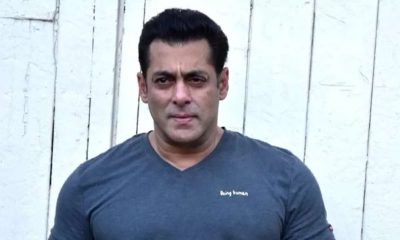
 India News19 mins ago
India News19 mins agoSalman Khan house firing case: Mumbai crime branch recovers gun, cartridges from Tapi River in Surat

